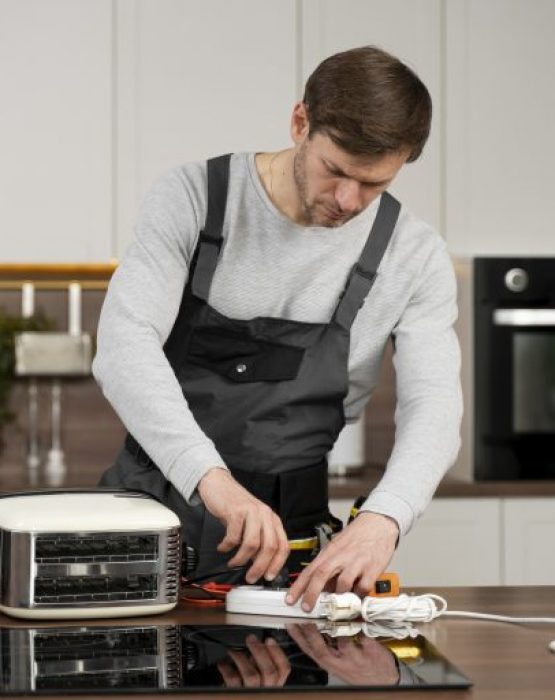Kitchenware Inspection - Homeware Quality Control Expertise
Kitchenware QC
Kitchenware Inspection - Homeware Quality Control Expertise
Homeware and kitchenware are indispensable in our daily routines, serving function and aesthetics. However, their value goes beyond appearances. Guaranteeing their safety and quality is paramount. This is where homeware and kitchenware inspection becomes pivotal.
Tetra Inspection is a trusted partner for homeware and kitchenware quality control. We understand the significance of these household items and offer meticulous inspection processes. Our assessments delve deep into each product, ensuring top-notch quality, durability, and, most importantly, safety.
Ensure your homeware and kitchenware are safe and compliant – Schedule an inspection today.
HOMEWARE INSPECTION
Understanding The Importance Of Homeware And Kitchenware Quality Control
In a world where the kitchen is often the heart of the home and individual choices are increasingly guided by health, functionality, sustainability, and economic considerations, the quality control standards for homeware and kitchenware are paramount. They’re not just a matter of corporate compliance; they directly impact daily life, global trade, and the environment. The following insights shed light on the multifaceted implications of quality control for homeware and kitchenware, highlighting why it’s more than a matter of mere product integrity.
User Safety Concerns:
Kitchenware and homeware are used daily and directly interact with food or other consumables. Low-quality materials or poor construction can lead to contamination with toxic substances like lead or BPA. Implementation of rigorous QC standards ensures that the products meet health and safety guidelines. Regular Testing for toxic elements and structural integrity minimizes health risks and legal liabilities.
Compliance and Environmental Impact:
The global push towards sustainability necessitates environmentally responsible manufacturing. Many regions now enforce strict materials, manufacturing processes, and recycling regulations. Implementing QC standards that align with environmental regulations ensures compliance and appeals to the growing demographic of environmentally conscious consumers.
Global Standardization and Market Access:
Different regions may have different quality standards for Homeware and Kitchenware products. With a standardized approach, manufacturers may find it easier to export their products. Aligning with international QC standards like ISO and ASTM can make products more appealing across different markets. It facilitates compliance with various regional regulations and helps in accessing new markets.
Functionality and Durability:
The proper quality controls lead to kitchenware that doesn’t crack, warp, or degrade quickly. Poor quality might initially cut costs, but frequent replacements may become more costly in the long run. Quality standards ensure that a non-stick pan performs as promised or that a pressure cooker doesn’t leak. This consistency leads to a trustworthy relationship between the manufacturer and the consumer.
Economic Implications:
High returns and low customer retention due to quality issues can wreak havoc on a business’s bottom line. Non-compliance with legal standards can also lead to fines and legal issues. A strict Homeware and Kitchenware QC safeguards against these economic risks. Continuous monitoring and quality improvement lead to efficiency gains, cost reduction, and a more robust reputation in the market.
Types of Homeware & Kitchenware Inspection
- Cutlery Inspection: Cutlery items, such as knives, forks, and spoons, are some of the most used tools in any kitchen. Inspection for cutlery includes assessing the sharpness of blades, the durability of handles, and the overall materials quality to ensure they are safe and effective for food preparation and consumption.
- Porcelain Product Inspection: Porcelain products, including dishes, bowls, and mugs, require inspections to verify their structural integrity, surface finish, and resistance to thermal shock. Inspectors also check for glazing imperfections or defects that could compromise the product’s safety.
- Glass Product Inspection: Products like Glassware, drinking glasses, pitchers, and baking dishes undergo inspections to ensure they are free from cracks, chips, and sharp edges. Heat resistance and clarity are also assessed to guarantee the glassware’s suitability for various uses.
Cookware Set Inspection:
Cookware sets often include pots, pans, and lids. Inspection involves:
- Evaluating the quality of each piece.
- Checking for proper fit of lids.
- Non-stick performance.
- Heat distribution.
- Ensuring that handles and knobs are securely attached.
Kitchen Appliance Inspection:
Kitchen appliances like blenders, toasters, and coffee makers undergo thorough inspections to assess their performance, safety features, and overall functionality. Inspectors check for potential hazards, such as exposed wires, improper grounding, and malfunctioning components.
Utensil Set Inspection: Utensil sets, including spatulas, ladles, and whisks, are inspected to ensure that they are made from food-safe materials, have comfortable grips, and are free from sharp edges or burrs that could harm users.
Kitchenware TESTING
The Key Elements Of Homeware And Kitchenware Testing
When it comes to homeware and kitchenware products, ensuring top-notch quality and safety is of utmost importance. Thorough Testing is a critical aspect of the quality control process, as it helps manufacturers and sellers guarantee that their products meet the required standards. Let’s dive into the essential elements involved in homeware and kitchenware testing:
Material Quality Assessment
At the heart of any quality assessment is the evaluation of materials used in producing homeware and kitchenware items. This aspect is pivotal in determining the products’ overall performance and safety. Material Quality Testing involves scrutinizing a range of materials:
- Cookware Materials: From sturdy stainless steel to lightweight aluminum and the convenience of non-stick coatings, each material is examined to ensure its suitability for food contact and freedom from harmful substances.
- Cutlery and Utensils: The durability and safety of the materials used in knives, spatulas, and other kitchen utensils are thoroughly assessed to withstand daily use and food preparation.
- Plastic and Silicone Components: Kitchen tools like spatulas and baking molds made from plastic or silicone are subject to heat resistance and durability tests, ensuring they won’t release unwanted chemicals into our meals.
Durability and Wear Resistance
Homeware and kitchenware items endure regular use and wear, so durability is paramount to guarantee long-lasting products. Testing encompasses:
- Impact and Drop Tests: Products are subjected to simulated effect and drop scenarios to assess their sturdiness and ability to withstand accidental falls.
- Abrasion Testing: The surfaces of various items are tested for resistance to scratches and wear, considering the wear and tear they may encounter during everyday use and cleaning.
Food Contact Safety Testing
For products that directly contact food, ensuring food safety is non-negotiable:
- Food-Grade Certification: Stringent tests and certifications are carried out to ensure that the materials used in food containers and kitchen tools are food-safe and free from toxic substances.
Packaging Integrity
The journey from the manufacturing site to the consumer’s kitchen requires robust packaging inspection:
- Packaging Integrity: Packaging is tested to ensure sufficient protection during transportation, safeguarding the product from damage.
Performance and Functionality Testing
Homeware and kitchenware products must deliver their intended purposes, and this is where performance and functionality testing come into play:
- Cookware Heat Distribution: The even heat distribution in cookware is essential for consistent cooking results. Testing ensures that hotspots are minimized, allowing for perfectly prepared meals.
- Cookware Non-Stick Performance: The non-stick properties of coated cookware are assessed to verify that food release is effortless and that cooking requires minimal oil or fat.
- Appliance Efficiency: Whether it’s a refrigerator, oven, or blender, the energy efficiency and performance of kitchen appliances are put to the test, ensuring they operate optimally and effectively.
Safety Features Verification
Safety is a top priority when it comes to homeware and kitchenware items, especially those with specific safety features:
- Handle and Grip Safety: The stability and strength of handles and grips are meticulously evaluated to ensure they can handle the stresses of daily use.
- Lid and Lock Mechanisms: The functionality and reliability of lid and lock mechanisms on containers and appliances are tested to prevent spills and accidents.
Ergonomics and User Experience
Comfort and ease of use are essential factors in designing homeware and kitchenware products that users will love:
- Comfort and Grip: Ergonomic assessments evaluate the comfort and grip of handles on utensils and cookware, enhancing the overall user experience.
- Ease of Use: Kitchen appliances are put through their paces, considering factors like control panels and accessibility to ensure user-friendliness.
Temperature and Heat Resistance
For products exposed to high temperatures during cooking and baking, heat resistance is vital:
Packaging and Labeling
- Heat Resistance Test: Products are subjected to extreme temperatures to test their ability to withstand heat without warping or releasing harmful fumes.
Main Tests Performed During Homeware and Kitchenware Inspection
Homeware and kitchenware Inspection involves a variety of tests to ensure product safety, performance, and adherence to quality standards. These items are integral to every household and are in direct contact with food substances or cooking tools. Therefore, they must be rigorously tested to ensure they are free from harmful substances and can withstand regular usage. The aim is to guarantee that these products are safe for consumers and meet their expectations for durability and functionality.
Here are some of the primary tests performed during the quality control inspection of homeware and kitchenware:
- Physical Inspection: The product’s general appearance, dimensions, weight, and color are assessed. This ensures consistency and conformance to the specified physical attributes of the product.
- Material Analysis: This test determines the materials used in the product. It safeguards against that harmful substances such as lead, cadmium, or BPA are not present in quantities that could harm users.
- Mechanical Safety Tests: These tests measure the durability of the products under normal use. They involve stress tests, drop tests, stability tests, and load tests.
- Leak Test: For items like pots, pans, and containers, a leak test is performed to ensure they are watertight.
- Temperature Resistance Test: This evaluates how a product reacts to different temperature levels, specifically for products used in heating or cooling.
- Chemical Resistance Test: Products are tested to ensure they do not react adversely when exposed to various household chemicals or detergents.
- Sharp Edge Test: This ensures no potentially dangerous sharp edges or points on the product.
- Dishwasher Safe Test: This test is performed to check if the product can withstand repeated cycles in a dishwasher without any damage.
- Microwave Safe Test: Tests are conducted to see if a product can safely be used in a microwave.
- Food Simulant Test: This test assesses whether the product will leach harmful substances into food by simulating food contact.
- Abrasion Resistance Test: Tests the product’s resistance to abrasion, ensuring the material will not wear down easily over time.
- Thermal Shock Test: This test determines the product’s resistance to sudden changes in temperature.
Each of these tests ensures that homeware and kitchenware products are high in quality and safe and durable for everyday use.
VITAL STEP IN THE Homeware and Kitchenware QC Process
The Homeware And Kitchenware Inspection Process
Inspecting homeware and kitchenware products is a critical stage in the supply chain, ensuring that these essential household items meet the relevant quality standards, safety regulations, and consumer expectations. Let’s delve into the different stages of the homeware and kitchenware inspection process:

Before manufacturing begins, inspectors engage in detailed evaluations to ensure alignment with quality specifications and production requirements.
- Material Selection and Verification: Our highly qualified inspectors assess raw materials like plastics, ceramics, metals, or glass, ensuring they meet the standards for durability, safety, and appearance.
- Design Review and Validation: The design specifications are meticulously reviewed to guarantee alignment with both quality requirements and consumer expectations.
- Factory Assessment: Inspectors evaluate the manufacturing facilities for their capabilities, machinery, and labor qualifications to produce the desired items within quality parameters.
Continuous monitoring is vital during production to detect and rectify any possible flaws or inconsistencies.
- Quality Control during Production: Our inspectors will closely observe the manufacturing process, identifying any deviations or defects that might affect the final product’s quality.
- Compliance with Standards: Regular checks ensure that the production complies with regional and international safety and quality regulations, including food-grade material requirements.
- Immediate Correction Implementation: If problems are discovered, our inspectors coordinate with the manufacturer to quickly enact corrective measures, minimizing wasted time and resources.
Upon completion of production, a rigorous Pre-shipment inspection is conducted before shipping.
- Finished Product Inspection: A random selection from the finished batch is tested to ensure all items conform to the established quality criteria and functional requirements.
- Functionality Testing: Functionality tests on kitchen appliances and utensils are performed to ensure usability, efficiency, and safety in real-world conditions.
- Packaging and Labeling Verification: The packaging process is supervised to ensure that the products are adequately protected for transportation and that all labeling, including user instructions and warnings, comply with relevant laws and standards.
Applicable Quality Control Standards For Homeware And Kitchenware
- ASTM International Standards (American Society for Testing and Materials): This is a globally recognized leader in developing and delivering voluntary consensus standards. Many homeware and kitchenware items are subject to these standards. For instance, ASTM F1045-16 provides guidelines for safety and performance requirements for ironing tables and stands. Following this standard ensures that the product is structurally sound and prevents accidents caused by instability.
- ISO Standards (International Organization for Standardization): These standards are recognized worldwide. ISO 9221-1:2017, for example, outlines safety requirements for cookware for domestic use. It specifies the criteria for mechanical strength, stability, resistance to heat, and materials in contact with food. It is relevant for items such as pots, pans, and kettles. For example, ensuring compliance with this standard could prevent scenarios where a poorly designed handle detaches from a heated pan, potentially causing harm.
- BSI Standards (British Standards Institution): These are UK standards but are often recognized globally. BS 7069:1988, for example, sets specifications for domestic pressure cookers. The standard includes requirements for design, construction, performance, marking, and instructions to ensure safety and reliability.
- EN Standards (European Norms): These are regulations that have been formally approved by one of the three European Standardization Organizations (CEN, CENELEC, or ETSI). One example is EN 12983-1:2000, which applies to non-electric kitchen utensils. It defines requirements and test methods for knives with non-stick coatings. This standard ensures the non-stick coating is safe for food contact and won’t deteriorate under standard cooking conditions.
- FDA Regulations (United States Food and Drug Administration): The FDA sets guidelines for materials used in kitchenware that will come into contact with food. This ensures that no harmful chemicals can leach from the product into the food. FDA CFR 21 (Code of Federal Regulations Title 21) is a crucial regulation relating to homewares, particularly regarding food-safe materials.
- NSF Standards (National Sanitation Foundation): The NSF International set standards for products that affect food and water. An example is NSF/ANSI 51, which sets the standards for materials used in food equipment, ensuring they are safe and can be easily cleaned.

How Tetra Inspection Can Help With Homeware And Kitchenware Quality Control
In-Depth Inspections Across All Stages
Tetra Inspection orchestrates meticulous inspections at various phases, including pre-production, during production, and pre-shipment stages. This rigorous process guarantees that no inferior products escape scrutiny, maintaining the integrity of your homeware and kitchenware line.
Customized Inspection Services
Acknowledging that businesses vary in their quality demands, Tetra Inspection crafts flexible and bespoke inspection methodologies. These are developed to synchronize seamlessly with your particular quality benchmarks, ensuring a fit-for-purpose approach.
Highly Skilled Inspection Personnel
Comprising a team of 350 trained inspectors proficient in homeware and kitchenware quality assurance, Tetra Inspection sets a high bar. Their acute attention to detail ensures a thorough evaluation of every aspect of your products, from functionality to aesthetics.
Prompt And Comprehensive Inspection Reporting
Tetra Inspection prioritizes timely communication, delivering exhaustive and well-articulated inspection reports at the earliest. This allows you to react swiftly to emerging issues, ensuring that quality remains uncompromised.
Schedule Your Kitchenware Inspection Today
Count on our team of experienced professionals for thorough kitchenware inspections, effectively mitigating risks and ensuring full compliance with global standards.
BLOG
Related Articles
shipment, minimizing risks and ensuring compliance with international standards.





